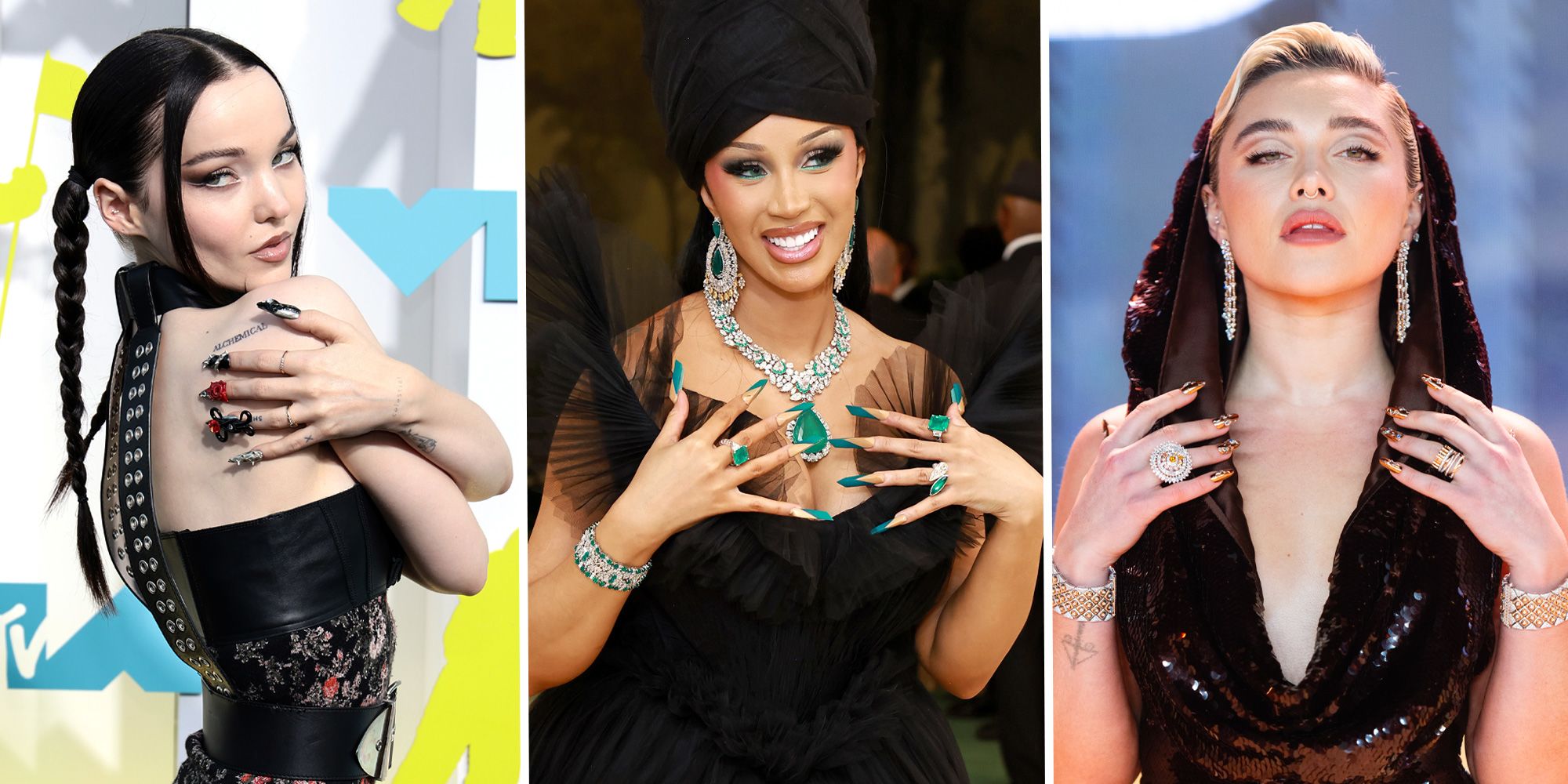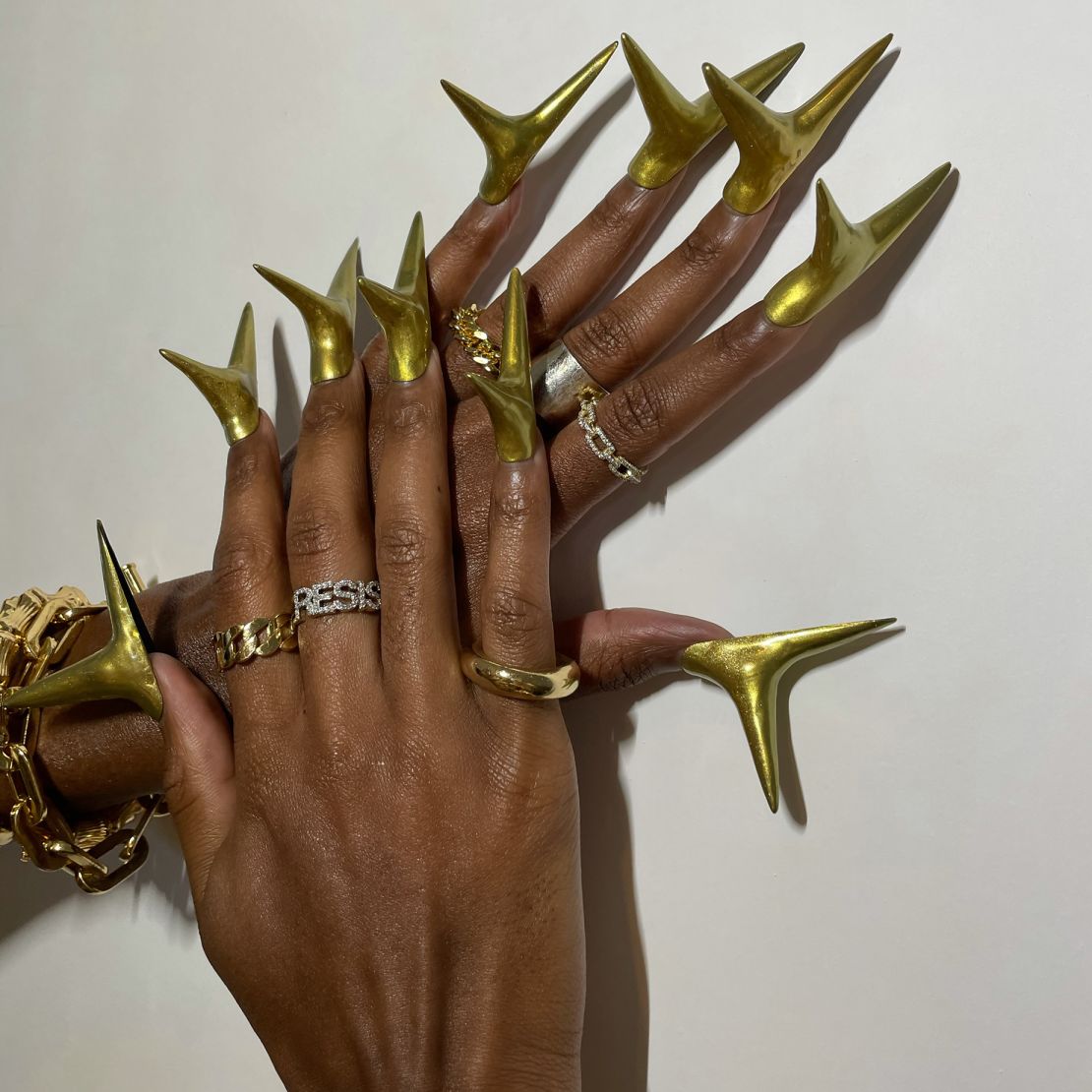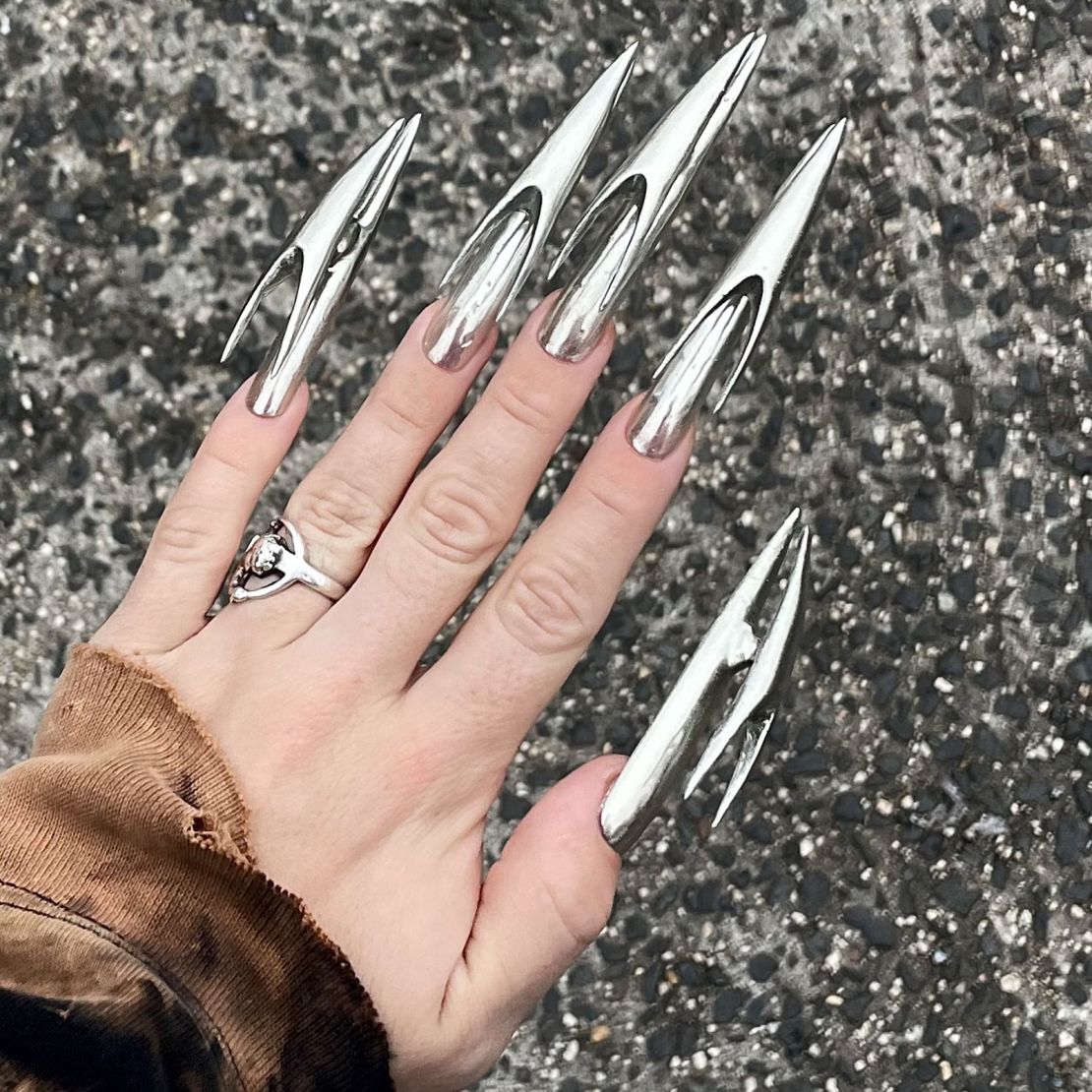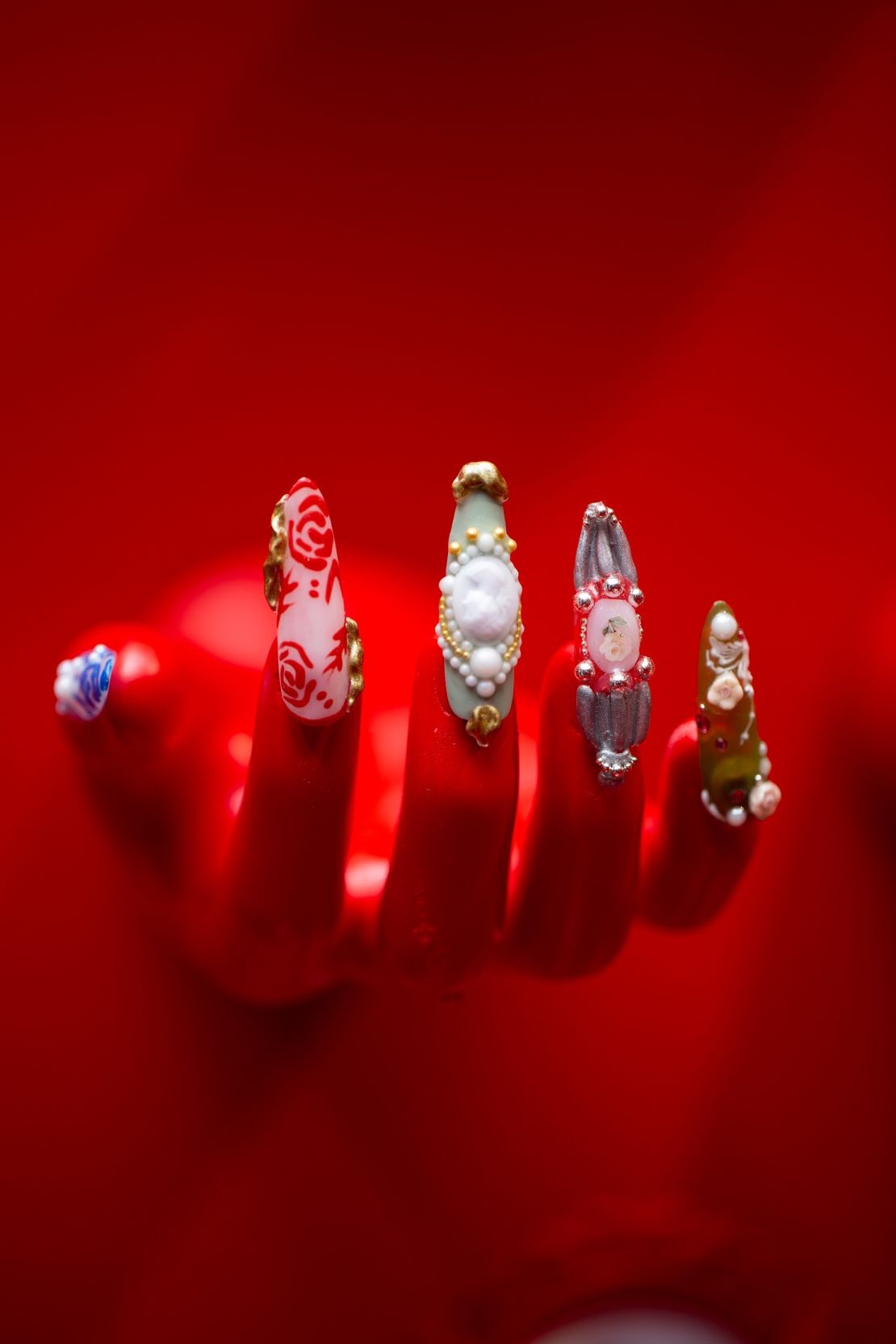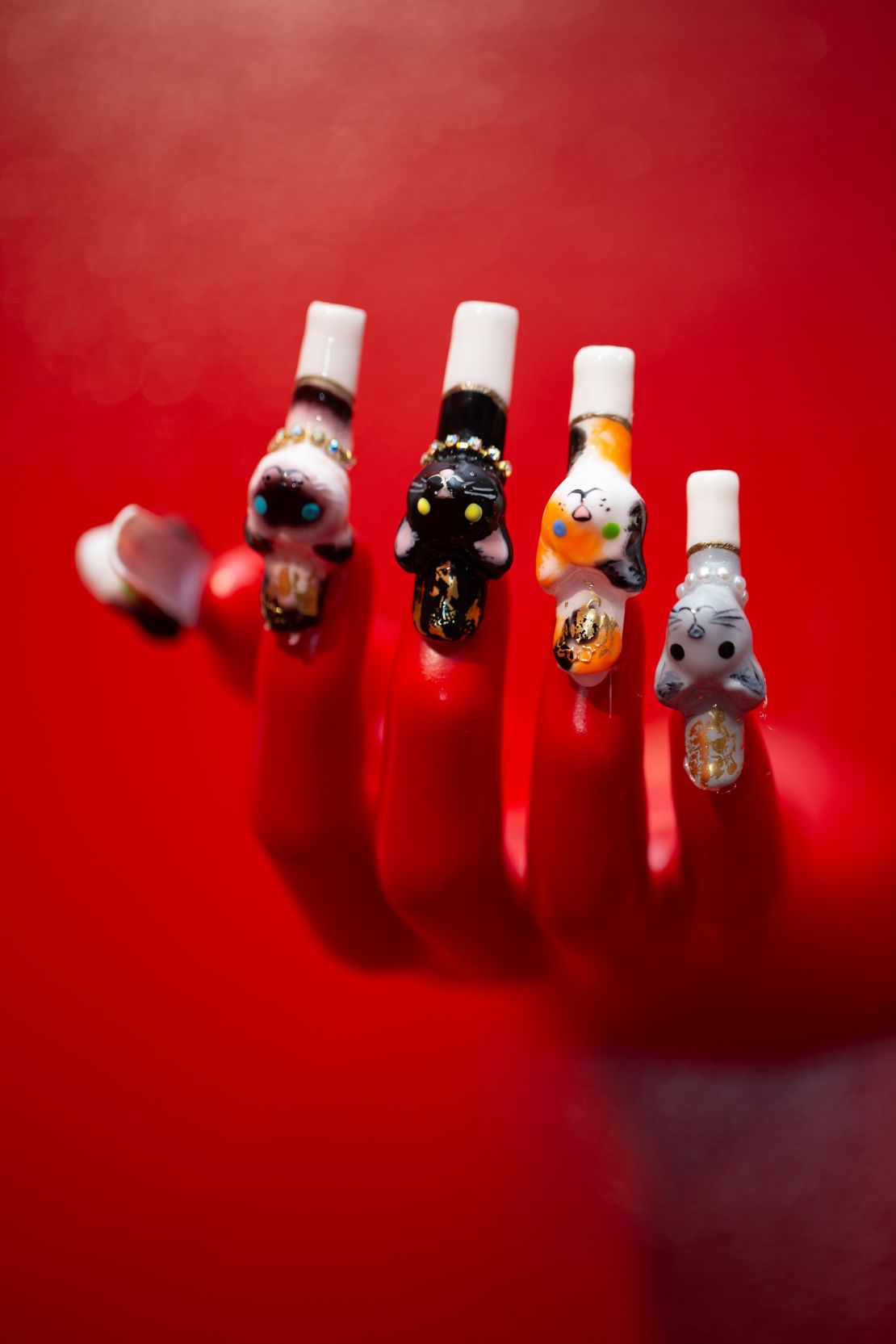When celebrity nail artist Juan Alvear first started doing nails in 2016, his deliberately “messy” and outlandish manicures would often extend through his clients’ hands and knuckles. There were large swatches of Barbie pink paint, abstract doodles rendered in glow-in-the-dark neons, and wiggly line work in deep blue polish that resembled a stormy sea.
Back then, Alvear was a student attending Cooper Union’s prestigious fine arts program in New York City, training to become a painter and sculptor. Like any good student, the majority of his time was spent inside a studio space he shared with six other classmates, painstakingly working on assignments.
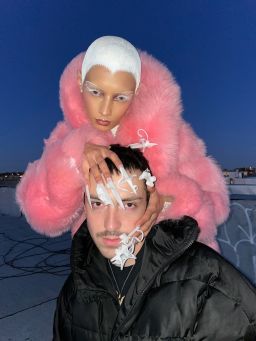
At least until someone with a bottle of Sally Hansen from Duane Reade walked in, ready to be slathered with colors like “Beet It” or “O-Zone You Didn’t.”
“I wasn’t even doing those nails in a serious capacity,” Alvear told CNN with a laugh over a video call, describing those madcap manicures as “experiments” undertaken primarily for fun. And in return, he’d be able to keep leftover polish?to use for his sketches and paintings — some of which were submitted as classwork — all while also creating content for his Instagram page, @byjuanalvear.
It was a win-win that satisfied both his oddball sense of whimsy and boundary-pushing art. Alvear’s designs are mind-bogglingly surreal, eye-catching and impressive; mixed-media creations that blend storybook fantasy, dystopian surrealism, and a distinctly Y2K aesthetic through gravity-defying shapes and the use of surprising materials, such as metal spikes, oversized gems, and glossy polishes.
Some of Alvear’s signature designs incorporate hyper-realistic versions of real-world oddities into a nail set — whether it be a Barbie head ice sculpture or a working hourglass — and turn an entire hand into a statement. Or as Alvear himself put it, a sort of “twisted fever dream” where everything “exists in excess for no reason.”
Soon enough, though, that social media side hustle had garnered Alvear a cult following, and acclaim that eclipsed his ‘traditional’ paint and sculpture works. Today, he is one the most sought-after manicurists in the industry, with his work regularly featured in luxury runway shows and on the hands of numerous A-listers like Lil Nas X, Rosalía, and Charli XCX, who’ve sported his nails on the red carpet, magazine spreads, and high-profile music videos.
Like most fashion trends and art movements, it’s hard to say when and where true nail sculpture began, although it’s safe to say that Black women pioneered statement acrylics after their invention in the 1950s. Superstars like Diana Ross and Donna Summer began wearing medium-length acrylics in the ‘70s; American track star Florence Griffith-Joiner becoming a style icon after famously breaking two world records at the 1988 Olympics, all while sporting a six-inch set of red, white, and blue acrylics. Throughout the ‘90s and aughts, statement nails continued to be a beauty staple for Black women, dominating hip-hop culture thanks to rappers like Missy Elliot and Lil Kim.
However, according to Isis Darks, curator of “ACRYLICS: Hidden Sculptural Art” a New York-based exhibition (now closed) and accompanying photobook, the more offbeat sculptural sets seemingly emerged around the early aughts in Tokyo’s fashionable Shibuya District. In the years since, they’ve laid the “foundation for some of the leading 3D creations,” with pioneering nail artist, Mei Kawajiri, being one of the first to open a “Shibuya style” nail salon in the city during the mid-aughts, where she made 3D sculpture of sweets, strawberries, eggplants and other playful subject matter — much of which was influenced her own love of “tiny miniature stuff.”

Now based in New York, Kawajiri continues to create sculptures inspired by ordinary, everyday objects — pasta, snails, toys and remote controls. Like Alvear, Kawajiri has accrued a large online following, which has landed her editorial gigs, couture fashion campaigns, and a large roster of celebrity clients like Emily Ratajkowski, Jonathan Van Ness, and even Kim Kardashian, who Kawajiri claimed once requested some “pierced toenails.”
For the most part though, she prefers more “practical” designs that allow her clients to go about their days relatively unimpeded, while Alvear creates ostentatious sculptural creations that aren’t at all suitable for everyday wear.
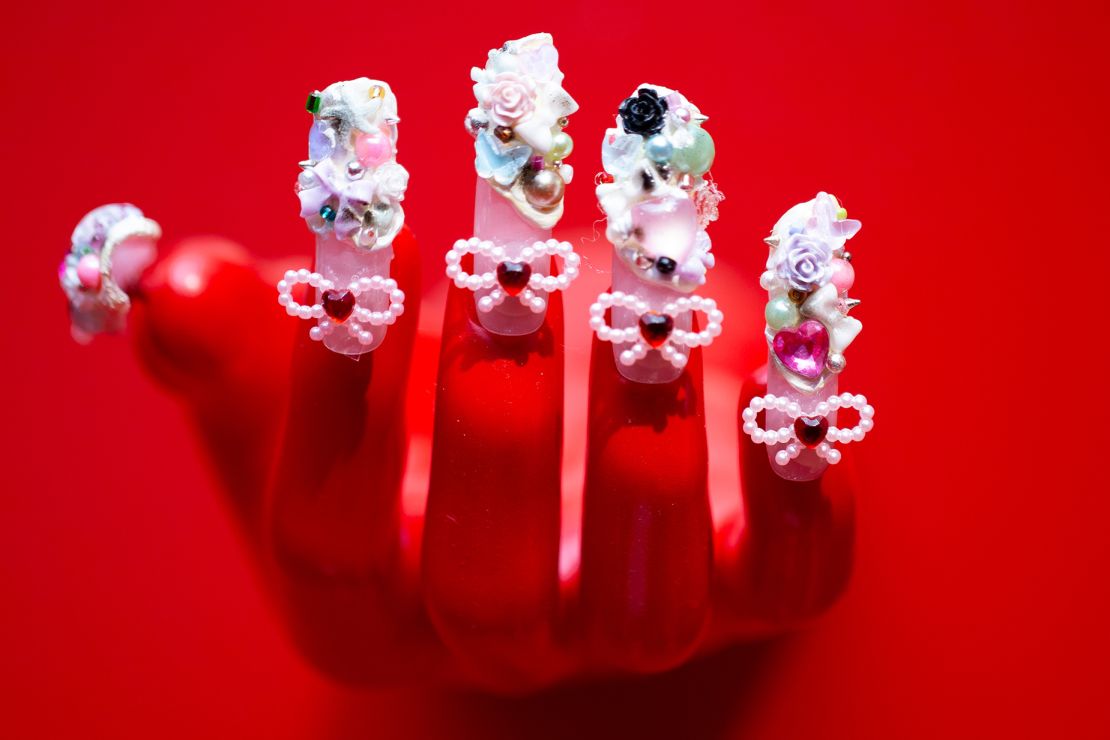
Despite their inconvenience, Kawajiri told CNN that she saw Alvear-inspired designs popping up all over TikTok and Instagram during Covid-19 lockdowns, when people began doing their own experimental manis at home and long nails were less of an issue. In fact, Kawajiri credits Alvear as the artist who made sculptural nail art “go viral” during this time, supporting Darks’ theory about the pandemic’s impact on social media subcultures (and culture at-large) causing?“a major shift in the contribution to nail art, conversation, and the growth of the community.”
As a result, interest in sculptural nails has skyrocketed, with over 34.4 million TikToks hashtagged “#3DNailArt,” celebrities making headlines with their surrealist nails, and the discovery of new artists like Morgan Gilbertson, who went viral last year for her intricate tea set nails.
For Alvear though, the acclaim still feels a little odd.
“I’m thinking that it’s just this weird thing that I kind of stumbled into,” Alvear continued, noting that he’d long been conditioned by more traditional expectations of what constitutes ‘art’. Beauty has long been “correlated with self-care and maintenance,” Darks explained, rather than as an interpretation of the body as a canvas. With its primary presentation being on a “human subject,” there’s a “lack of acknowledgement for hairstylists, make-up artists, and nail artists in ‘white cube’ spaces.”
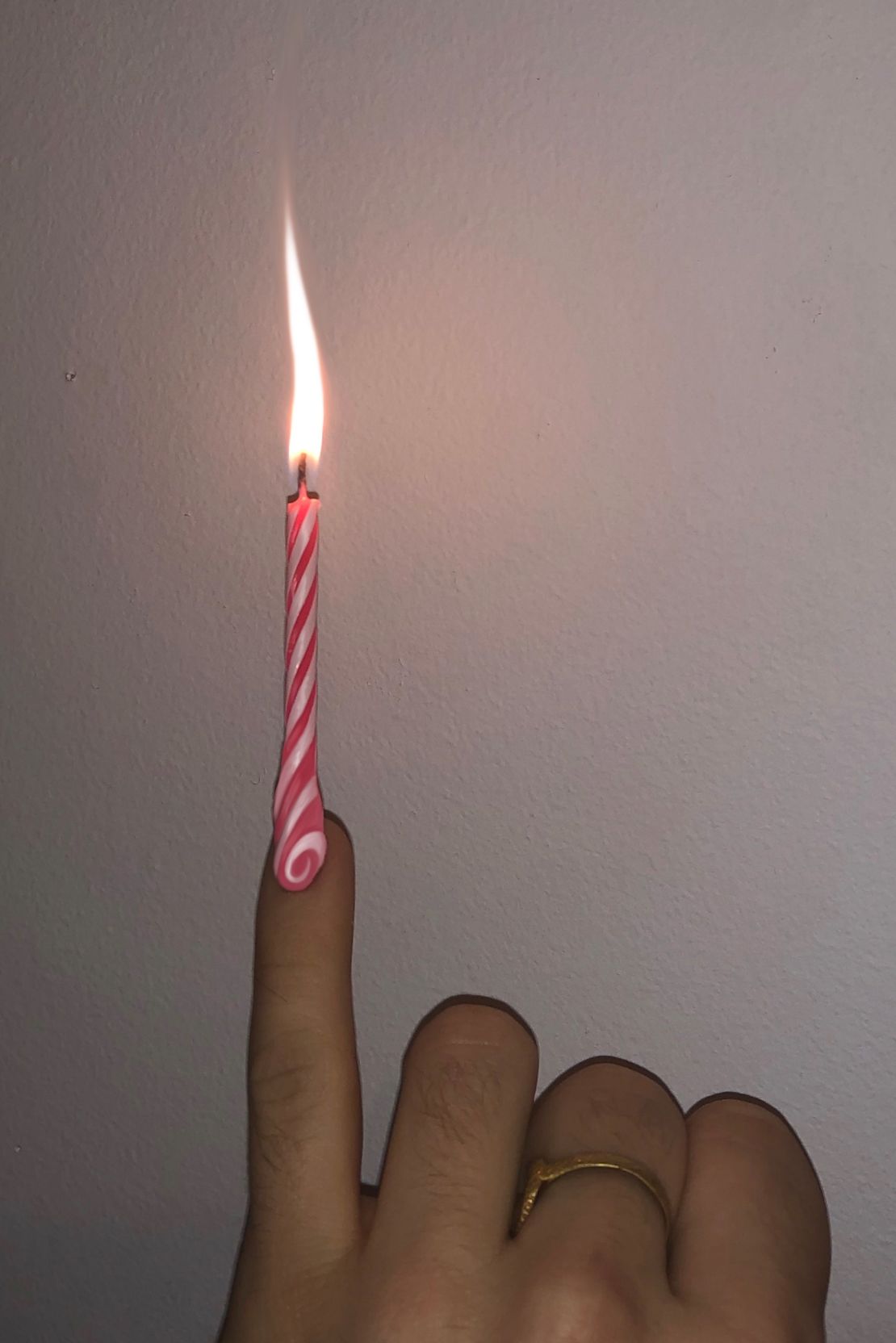
One could argue that nails are the least appreciated among the three, as hairstyling has already been the focus of shows at the Musée des Arts Décoratifs in Paris. Meanwhile, makeup artistry has also appeared inside the white cube via in-depth exhibitions examining the link between makeup and politics, and the Metropolitan Museum of Art’s multiple collaborations with the likes of Pat McGrath Labs, Le Labo, and Estée Lauder on limited-edition beauty products inspired by temporary exhibitions and the institution’s permanent collection. In comparison, nail art displays are often held at independent galleries — DegreeArt.com’s modest show in 2011 or the CND-sponsored exhibit at the Oceanside Museum of Art in 2019 — both of which were focused on painted sets, rather than sculptural pieces.
But, some believe this is changing. Recent exhibitions like “ACRYLICS” have sought to put the practise on a pedestal — or a gallery plinth, rather. Alvear has exhibited work including several standalone fingernail sculptures in a solo show at the Treize Gallery in Paris, which was said to deftly combine the “often separate realms of fine art, design and (the) beauty industry.”
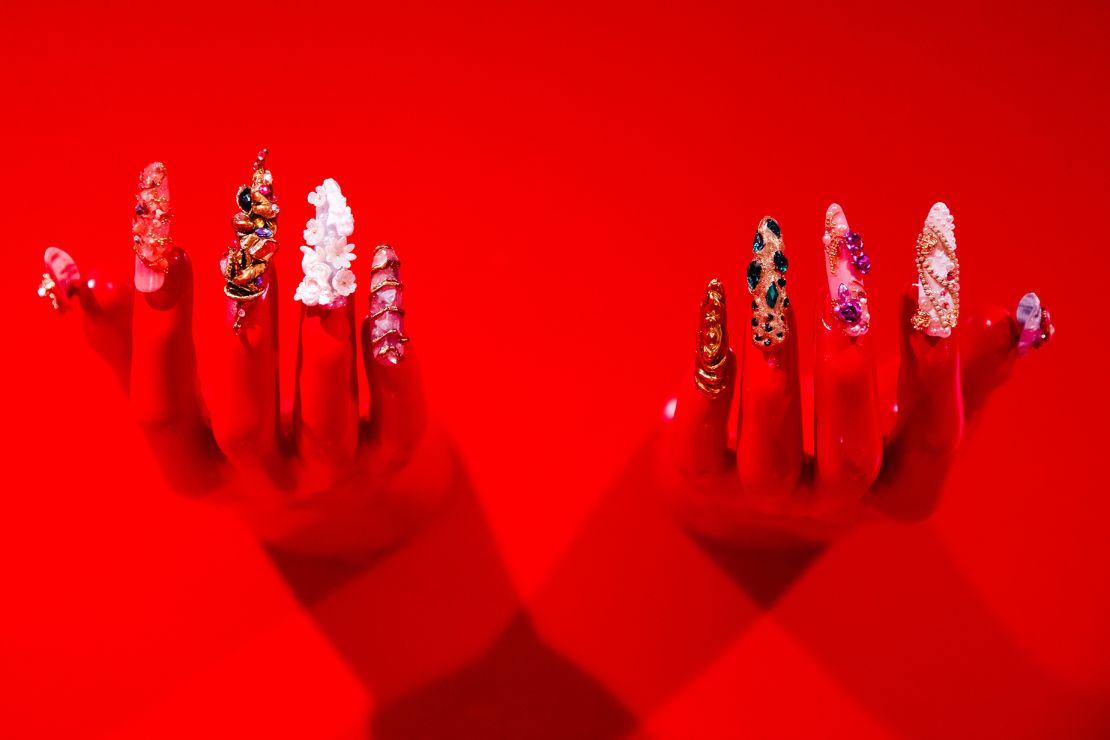
“I think the shift is this public acknowledgment and participation in understanding that nail artists aren’t simply doing something ‘low-brow,’” Darks said, noting that “these artists are recreating Basquiat, Van Gogh, and realism portraits” on tiny surfaces.
“(It’s) opening the doors and conversations for galleries and curators in the art industry to consider multimedia concepts from these beauty-led mediums,” she said — a sentiment echoed by both Alvear and Kawajiri. The only real difference, after all, is the substitution of a tube of traditional acrylic paint for a little pot of acrylic sculpting gel.
